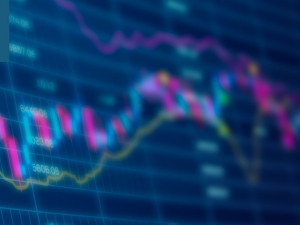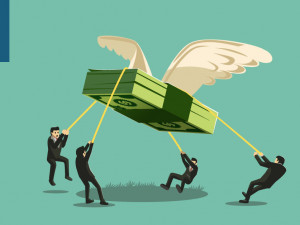
Haldane; economy to roar back
Morning mid-market rates – The majors
15th February: Highlights
- Only Q4 performance counts going forward
- U.S. economy to reach pre-Covid levels in a year.
- Draghi takes over an Italian economy in tatters
Rapid rollout of vaccines will release pent up demand
While employment still concerns analysts, the fact that, differently to most recessions, there is a huge pile of pent-up demand growing which will burst like a dam once the lockdowns are lifted.
Fifteen million people have now been vaccinated. This puts the UK way out in front of other G7 economies.
Pressure is growing for the Government to start a phased reduction in restrictions and the Prime Minister has announced that he will announce a roadmap of just how the lifting of lockdowns will begin on February 22nd. This week is sure to be full of exclusives about how the plan will work.
There is an optimism beginning that the country can start to get back to normal and this will fire the release of a coiled spring of activity. From buying that new TV, to eating out or going to the cinema or theatre, the lights are set to be turned on again.
The Chancellor, celebrating a year in the job, has been released, to a certain extent, from his obligation to balance the books quickly by the fact that Boris Johnson has already played down the possibility of tax increases or a return to austerity.
It is a bold claim, but Johnson is determined that the country will grow itself back to financial health.
The issue of dominance over the financial markets remains and London has ceded a degree of control to Paris, Frankfurt, and, surprisingly, Amsterdam.
The headline GDP data showing that the economy contracted by 7.8% drove the headlines but news of a survey-beating 1% rise in Q4 should have been more celebrated.
That means that even a partial lifting of lockdown in Q1 will see the country begin the year on the front foot.
Last week Sterling made a few attempts to break higher and nascent selling interest in the low 1.38’s versus the dollar was finally filled, leading to a close at 1.3866. This was the highest close since April 2018 and could be the prelude to an ascent to 1.40.
Considering your next transfer? Log in to compare live quotes today.
Stimulus package to light blue touchpaper on economy
Trump still has two appealing characteristics. He has plenty of money with which to fund another campaign, and the knowledge that close to 75 million Americans voted for him last November.
The exorcism didn’t exactly go to plan, but at least now Congress can get back to work. The first cab off the rank will be the stimulus package. Valued at $1.9 trillion, it is still attracting criticism from Republicans who believe that it is far too widely spread, and a smaller but more targeted Bill would be more effective.
It is doubtful their voices will be heard, far less even considered, when it is debated on the floor of the House.
There is a growing level of optimism that is pervading the country and a feeling, a month late, that President Biden can really get to work in repairing both the social as well as economic ills that have befallen the U.S.
Many Central Bankers around the world will be asking who stole Janet Yellen. At the most recent meeting of G7 Finance Ministers, Yellen encouraged the entire group to go big or go home. This is a totally different mantra to her time as Fed Chairman and proves the adage that tough times call for tough measures.
The price data that was released last week allayed the fears, voiced by many, that inflation was set to explode higher. It is fairly clear, with unemployment close to 7% that until the NFP starts to see far more jobs added, a net 178k jobs were lost between December and January, then demand won’t even come close to supply in any area of the economy.
The dollar index seems to react more to the prospect of rates staying lower for longer, casting off concerns over inflation and potentially higher rates. This is very much the mantra of Jerome Powell. He believes in advance guidance and so far, he is very much in the dovish corner.
The index fell to a low of 90.25 last week, closing at 90.45. Technically it looks to have support around the week’s low but that doesn’t look insurmountable.
Italy blaming Brussels for vaccine shortage
Mario Draghi was confirmed as Italian Prime Minister on Saturday. He will face several tough challenges as he starts to repair a socially and economically troubled nation.
Italian GDP data is, as was also seen in the UK, something of a red herring since what else could be expected from such a devastating recession as was wrought by the Pandemic, which appeared to mushroom out of nothing in the north of the country.
The Italian economy shed close to half a million jobs last year and the task of repairing that together with poor productivity and ending mind-blowing levels of bureaucracy will be Draghi’s principal task.
Add to that the worst debt to GDP ratio other than Greece in the EU and demands from Brussels that a plan is produced by April of how the Eur 200 billion of support Rome is due to receive in aid, will be used.
Draghi has already been strident in his demands that emergency funding is used to the benefit of coming generations. That will be well received in Brussels, but it will be a major source of debate closer to home.
The distribution of aid was a major reason why the previous Government collapsed leading the President to demand a Government of National Unity with Draghi as PM.
In the wider Eurozone, the perpetual concern of inflation was again raised by the Bundesbank.
Just possibly, Jens Weidmann, the BUBA President may not actually be crying wolf this time.
There is a possibility that over the whole region, where savings rates have been somewhat depressed, demand will exceed supply as the reopening of the economies takes place. This will highlight the stark fracture between performance of economies across the entire union.
Eurozone-wide GDP data will be released this week and again the year-on-year data will attract headlines. This may turn out to be correct as there is no light appearing at the end of the tunnel just yet.
The relative strength of the euro may be a saving grace for the Bundesbank as it will be a drag on inflation if it does start to rise. However, at the moment it contributes to deflation which can be equally damaging.
The single currency rose to a high of 1.2150, closing at 1.2118. It is making a series of lower highs which may mean that a sustained break below 1.20 could be imminent.

About Alan Hill
Alan has been involved in the FX market for more than 25 years and brings a wealth of experience to his content. His knowledge has been gained while trading through some of the most volatile periods of recent history. His commentary relies on an understanding of past events and how they will affect future market performance.”



